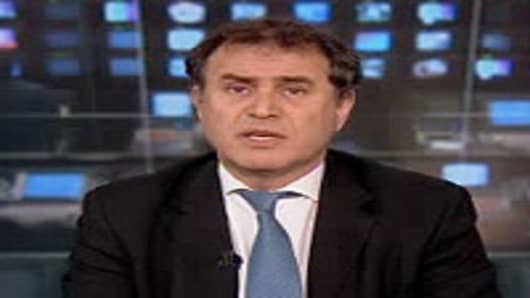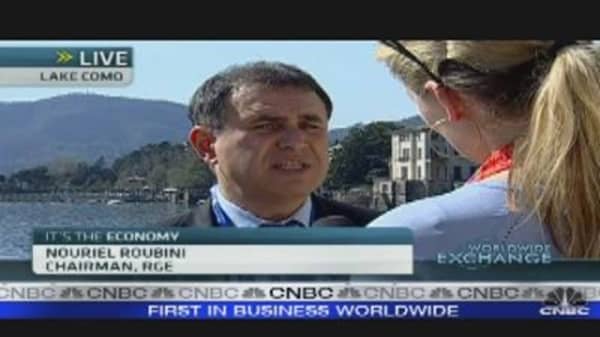Recapitalizing Irish banks would be bad if done with government money, because it would affect the country's ability to fund itself even further, Nouriel Roubini, chairman of Roubini Global Economics, told CNBC on Friday.
Late on Thursday, Ireland revealed results of stress tests on its banks, saying they need a further 24 billion euros ($34.11 billion) in capital, in line with market expectations.
Ireland's government could pay 17.5 billion euros to recapitalize its banks while the European Central Bank and the Irish Central Bank will also contribute to the funding, finance minister Michael Noonan told parliament, according to Reuters.
But Roubini said a better solution, although not agreed by European Union officials, would be to convert the debt into equity, as the last round of recapitalization may be insufficient.
"I'm not sure that it's going to be enough and putting all the losses of the banks on the balance sheet of the government and eventually breaking the back of the government … it's not the right solution," Roubini said in an interview from the Ambrosetti Forum in Italy.
"They cannot keep on socializing losses and eventually having sovereign risk becoming banking risk and banking risk becoming sovereign risk, that's not the right approach."
Roubini said he was worried that an upcoming interest rate increase by the European Central Bank would harm the weaker euro zone economies, which do not need monetary tightening because their economies aren't growing.
But with euro zone inflation at a 29-month high, many analysts expect the central bank to follow through on its promise and hike interest rates next Thursday. (The euro was flat against the US dollar on Friday.)
"I understand the logic of the ECB argument [but] I worry that the periphery is going to be damaged by this rate rise," Roubini said.
The weakest economies are in peripheral Europe – Greece, Portugal, Ireland and Spain – while the core euro zone countries such as France and Germany will "do well," Roubini told CNBC.com.
Countries like Canada and Norway are part of the strong commodity story and have also strong trading ties with China, while the US economy will perform relatively better but it still has risks regarding its budget deficit and the housing market, he added.
Rising oil and energy prices are likely, especially with the turmoil in the Middle East, while rises in food prices are likely to translate in inflation, which will likely "complicate life for central banks," Roubini said.
"If the ECB raises rates in April, in my view it signifies a series of rate increases," he told a new conference later.
The euro at $1.40 is manageable for Germany, but not for peripheral Europe, he added.
Job creation this year in US will be better than last year, Roubini said, but added that 150,000 jobs created per month are not enough to reduce the unemployment rate.




